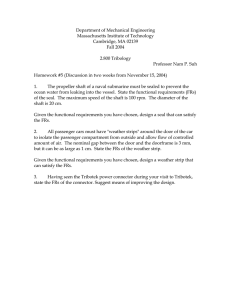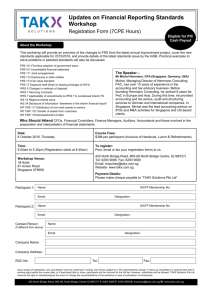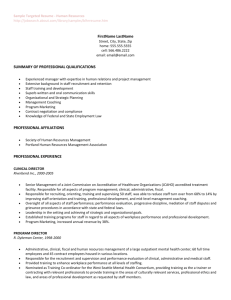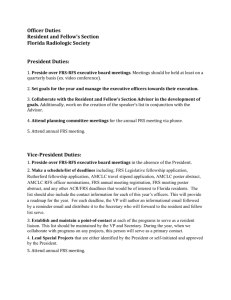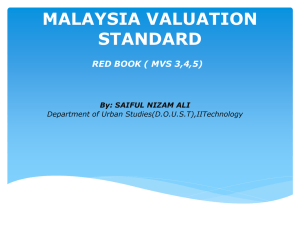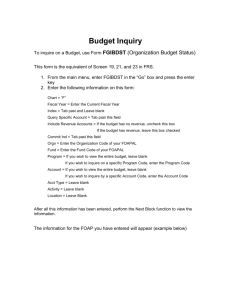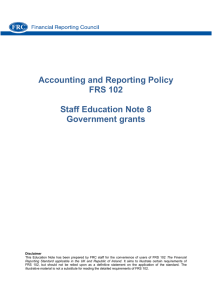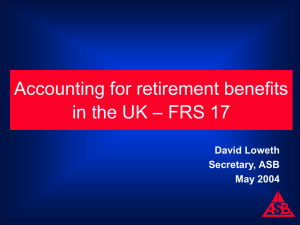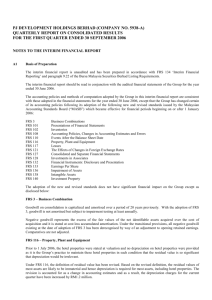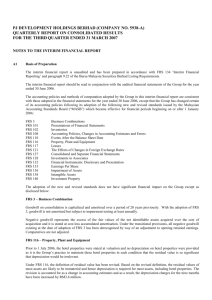April Questions and Answers Q. Does FRS 19 'Deferred Tax' apply
advertisement
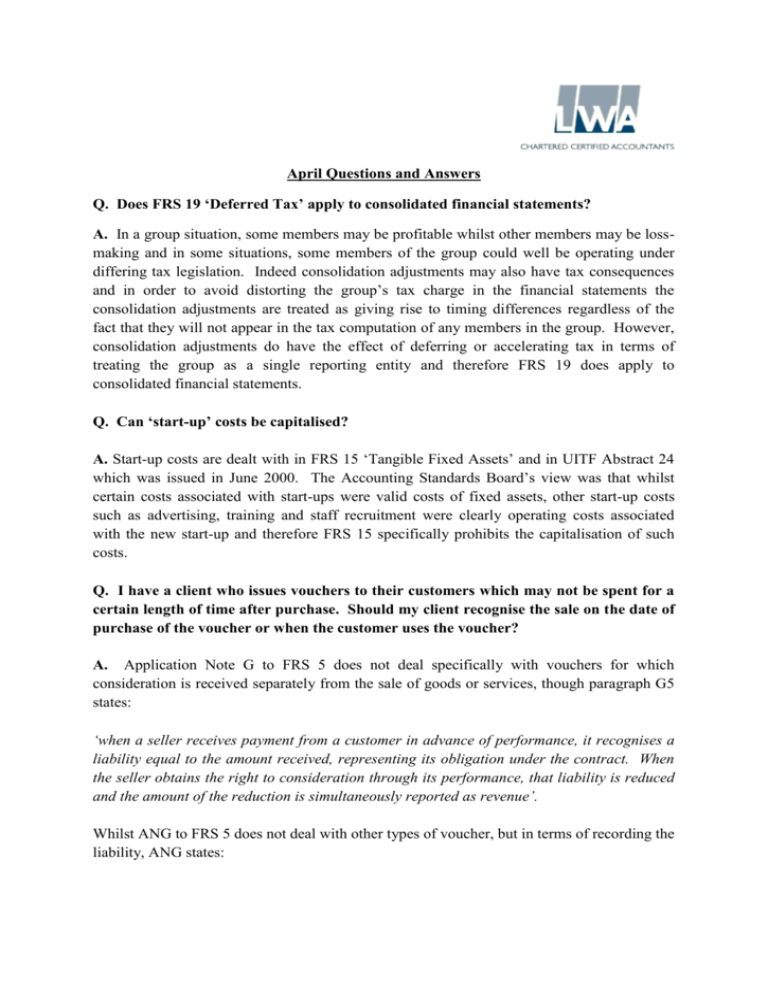
April Questions and Answers Q. Does FRS 19 ‘Deferred Tax’ apply to consolidated financial statements? A. In a group situation, some members may be profitable whilst other members may be lossmaking and in some situations, some members of the group could well be operating under differing tax legislation. Indeed consolidation adjustments may also have tax consequences and in order to avoid distorting the group’s tax charge in the financial statements the consolidation adjustments are treated as giving rise to timing differences regardless of the fact that they will not appear in the tax computation of any members in the group. However, consolidation adjustments do have the effect of deferring or accelerating tax in terms of treating the group as a single reporting entity and therefore FRS 19 does apply to consolidated financial statements. Q. Can ‘start-up’ costs be capitalised? A. Start-up costs are dealt with in FRS 15 ‘Tangible Fixed Assets’ and in UITF Abstract 24 which was issued in June 2000. The Accounting Standards Board’s view was that whilst certain costs associated with start-ups were valid costs of fixed assets, other start-up costs such as advertising, training and staff recruitment were clearly operating costs associated with the new start-up and therefore FRS 15 specifically prohibits the capitalisation of such costs. Q. I have a client who issues vouchers to their customers which may not be spent for a certain length of time after purchase. Should my client recognise the sale on the date of purchase of the voucher or when the customer uses the voucher? A. Application Note G to FRS 5 does not deal specifically with vouchers for which consideration is received separately from the sale of goods or services, though paragraph G5 states: ‘when a seller receives payment from a customer in advance of performance, it recognises a liability equal to the amount received, representing its obligation under the contract. When the seller obtains the right to consideration through its performance, that liability is reduced and the amount of the reduction is simultaneously reported as revenue’. Whilst ANG to FRS 5 does not deal with other types of voucher, but in terms of recording the liability, ANG states: ‘Regard should also be paid to the proportion of vouchers that are expected to be redeemed’ and it states ‘at each reporting date the seller should review its estimated liability for outstanding vouchers having regard to the experience of the proportion that are redeemed and expire. Adjustments to the estimate should be included within revenue’. (ANG FRS 5 at paragraphs G39 and G41). It follows therefore that revenue should be deferred and recognised when the seller performs their part of the contract. Steve Collings FMAAT FCCA DipIFRS is audit and technical manager at LWA Ltd and a partner in AccountancyStudents.co.uk. He is also the author of ‘The Core Aspects of IFRS and IAS’ and lectures on financial reporting and auditing issues.
